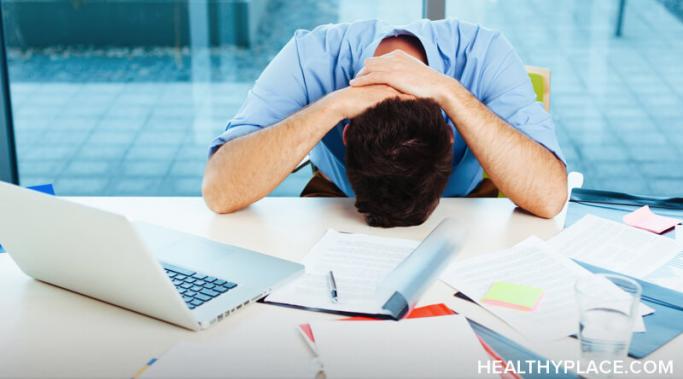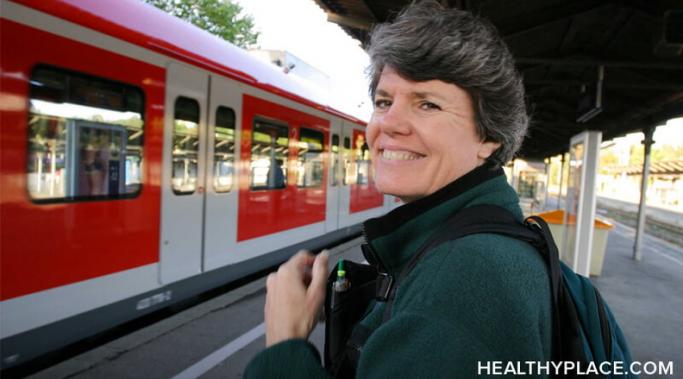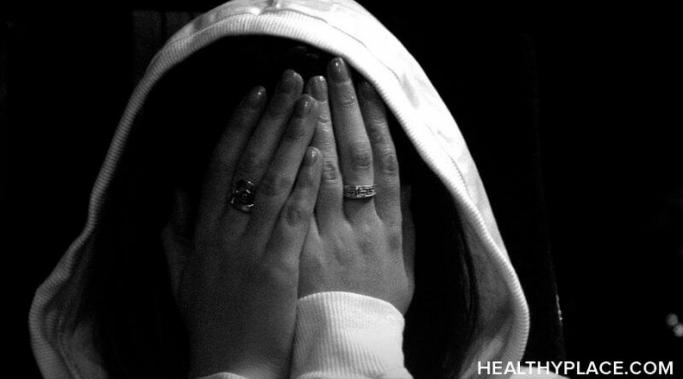It can be difficult to explain posttraumatic stress disorder (PTSD) symptoms to friends, but it helps me to do so. PTSD symptoms include an array of possibilities such as anxiety, depression, panic attacks, difficulty bonding, addiction, insomnia, and dissociation. People experience PTSD in very different ways, based on their trauma history, resilience, supports and a myriad of other factors. So here is why I find it beneficial to explain how my specific PTSD symptoms manifest themselves, and why you might too.
PTSD Symptoms
If you experience posttraumatic stress disorder (PTSD), you are eligible for workplace accommodations under the Americans with Disabilities Act (ADA). While not everyone with PTSD will require accommodations, there are many options available for dealing with fatigue, stress, poor concentration, memory loss, and anxiety. Read about these workplace accommodations for employees with PTSD.
Living with posttraumatic stress disorder (PTSD) during pregnancy can be scary. Pregnancy can be an overwhelming experience for anyone; for women with posttraumatic stress disorder (PTSD), being pregnant can be joyful, stressful, and even frightening. Additionally, there is not much information to be found on how PTSD symptoms can impact pregnancy, leaving many women with more questions than answers (Effects of Psychiatric Medications During Pregnancy). Understanding your diagnosis and maintaining a strong support system can help counter the uncertainties that come about when you're pregnant and living with PTSD.
Travel anxiety and posttraumatic stress disorder (PTSD) magnify the tension of planning and leaving on a vacation. The traveling, the unknown venues, crowds, open spaces and other unpredictable scenarios can make many PTSD symptoms such as anxiety, depression, dissociation and fatigue more prominent. Of course, having PTSD doesn’t mean you should stay close to home. By taking some extra time to detail your travel plans, you can handle travel anxiety and PTSD.
Knowing when you'll need to cope with posttraumatic stress disorder (PTSD) triggers in social settings is an unpredictable aspect of posttraumatic stress disorder. Despite knowing many of the situations where encountering a PTSD trigger is likely, there is no way to anticipate or to avoid every trigger (PTSD Recovery: How to Cope With Triggers). PTSD triggers that occur in social situations call for a toolkit of coping strategies that you can use even when it isn't practical to leave the group setting.
Individuals with complex posttraumatic stress disorder (C-PTSD) frequently experience varying levels of dissociative amnesia and they need to learn coping skills for dissociative amnesia in C-PTSD (Complex Posttraumatic Stress Disorder vs. Simple PTSD). For myself, dissociation was my superpower when I had no other means of coping. However, decades later, certain sights, sounds, smells, stressful experiences or perceived dangers can still trigger my complex PTSD dissociation. Here are some of the coping skills I use for complex PTSD-related dissociative amnesia.
Many people feel a let-down when the holidays are over, but when you have posttraumatic stress disorder (PTSD) and post-holiday depression hits, it can be especially hard. Depression and PTSD often go hand-in-hand and it's something that I am continually dealing with--even during the best of times. Now that the holidays and all their activities, stresses, and excitement are over, depression with my PTSD is popping up and I am doing my best to cope with it.
Dissociation due to posttraumatic stress disorder (PTSD) is just one of the symptoms that many of us who have PTSD have to cope with, but it can be a disruptive one. Most people who have survived trauma dissociate to some extent; it's one way that the brain protects us from dealing with frightening events. For some of us, dissociation might be a mild sort of "spacing out" when triggered, but for others, it can be a truly unsettling feeling that is difficult to deal with.
Complex PTSD (posttraumatic stress disorder) results from experiencing prolonged trauma, over which the person has little or no control, and from which escape seems hopeless. Many times, complex PTSD affects those who suffered ongoing physical, emotional, or sexual abuse during childhood and victims of long-term domestic violence.
I don't know how many times I have asked myself about fatigue and posttraumatic stress disorder (PTSD) since being diagnosed. There are times I feel extremely exhausted when I haven't done anything to cause it. Naps during the day have gone from being a luxury to being a necessity at times. Feeling this way isn't unusual for someone with PTSD; there are both psychological and physical factors that cause us to feel so tired. Fortunately, I have found some things that help me to deal with the PTSD and fatigue and still be productive.









